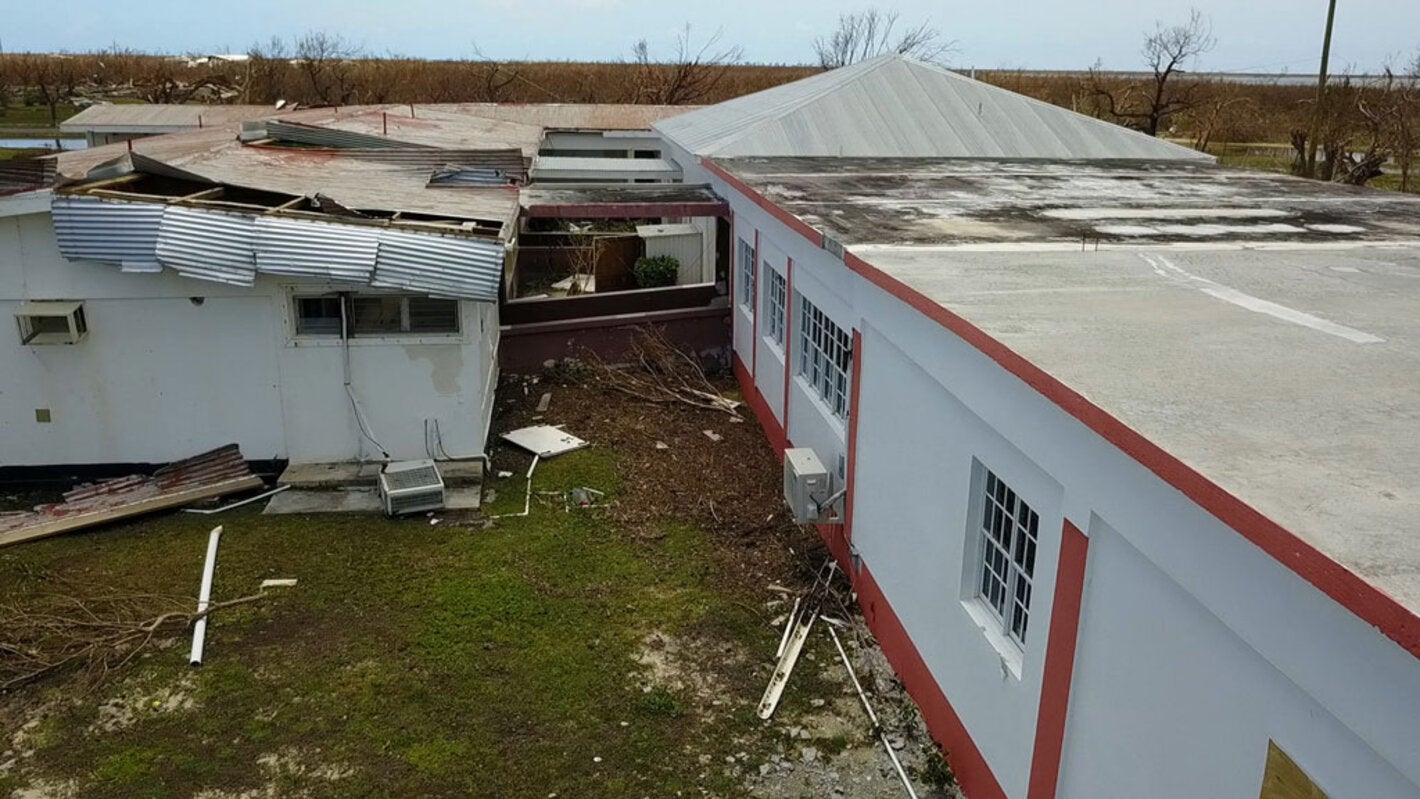
Washington, Sept. 19, 2017 (PAHO/WHO)- Countries in the Caribbean continue implementing critical health response actions with support from the Pan American Health Organization, which is deploying Regional Response Teams and shipping medical and humanitarian supplies to islands affected by Hurricanes Maria and Irma. Heavy rain and wind continue to hit the Leeward Islands, including those already affected by Hurricane Irma.
Hurricane Maria made landfall on Dominica Monday night as a Category 5 hurricane with 155-mph winds, causing heavy devastation. Prime Minister Roosevelt Skerrit said in a social media post that "The winds have swept away the roofs of almost every person I have spoken to or otherwise made contact with. My focus now is in rescuing the trapped and securing medical assistance for the injured" on Dominica.
Priority needs include urgent repair and operational recovery of damaged health facilities in order to resume critical health services in the aftermath of the two category 5 hurricanes that impacted the Caribbean in less than 2 weeks. These services are hardly needed particularly to manage emergency patients, to allow for quick diagnosis and treatment of communicable diseases, and to reestablish treatment of chronic and non-communicable diseases, said Ciro Ugarte, who heads PAHO's Health Emergencies program.
Hurricane Maria "could greatly impact already battered structures and debris, complicate humanitarian aid delivery, and displace more people to shelters. A quick delivery of needed supplies and human resources as well as prepositioning and preparation for the coming storm will be important to avoid further public health impact in the countries and territories located in the path of this powerful hurricane," Ugarte said.
The deployment of Regional Response Teams to the islands includes health disaster coordinators, sanitary and health facilities engineers and epidemiologists, as well as experts in public health, information management, logistics, vector control, and damage and needs assessment.
Maintaining sanitary conditions, especially in shelters, continues to be a priority. Increases in mosquitoes and rodents have been reported in heavily impacted islands. Vector control and cleaning supplies needs list has been requested from affected islands.
Intensified epidemiological surveillance to support early detection and timely management of disease outbreaks is crucial due to lack of access to clean water, healthcare and treatment, and increase in vectors, Ugarte said. Some shelters are already reporting diarrheal and skin diseases.
Healthcare professionals are being deployed from different islands to support the needed surge in human resources. Strengthening capacity in addressing mental health in impacted populations, especially those in shelters, is important, he added.
Logistics needs include restoration of the vaccine cold chain and increased space and safety for storage of medicines and health supplies. Security issues remain a challenge in the islands in order to distribute basic supplies and deploy personnel. A quick delivery of needed supplies and human resources is important due to Hurricane Maria and other potential storms developing in the Atlantic, Ugarte added.
Requested supplies are being provided by PAHO HQ and country offices in Jamaica, Barbados, the Bahamas, Haiti, Dominican Republic, and Trinidad and Tobago. As the needed medical and humanitarian supplies are identified by countries and shared with PAHO, they are being prepositioned in Panama and Barbados for rapid distribution in response to Hurricane Maria.
PAHO continues to assess needs of impacted countries and territories and deploy funds, supplies and human resources as needs are identified by impacted islands. As new information emerges from the field, new possible deployments may be considered by health authorities, especially after the passage of Hurricane Maria. A second round of deployments is being organized.
The Pan American Health Organization (PAHO) is coordinating emergency projects to cover medical supplies, reestablish health services, and purchase of essential medicines and medical equipment. The United Nations (UN) is developing a joint UN Response Strategy that lays out the priorities of international humanitarian agencies (UN and NGOs and IFRC), working closely with national Governments and regional counterparts including the Caribbean Disaster Emergency Management Agency, CDEMA.



